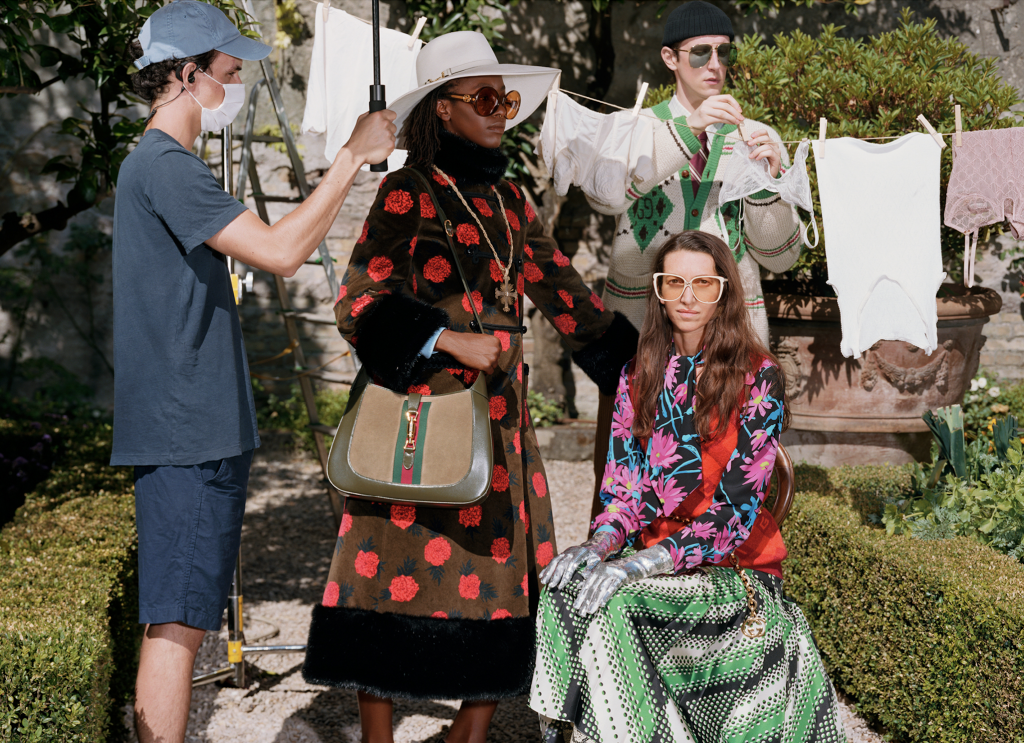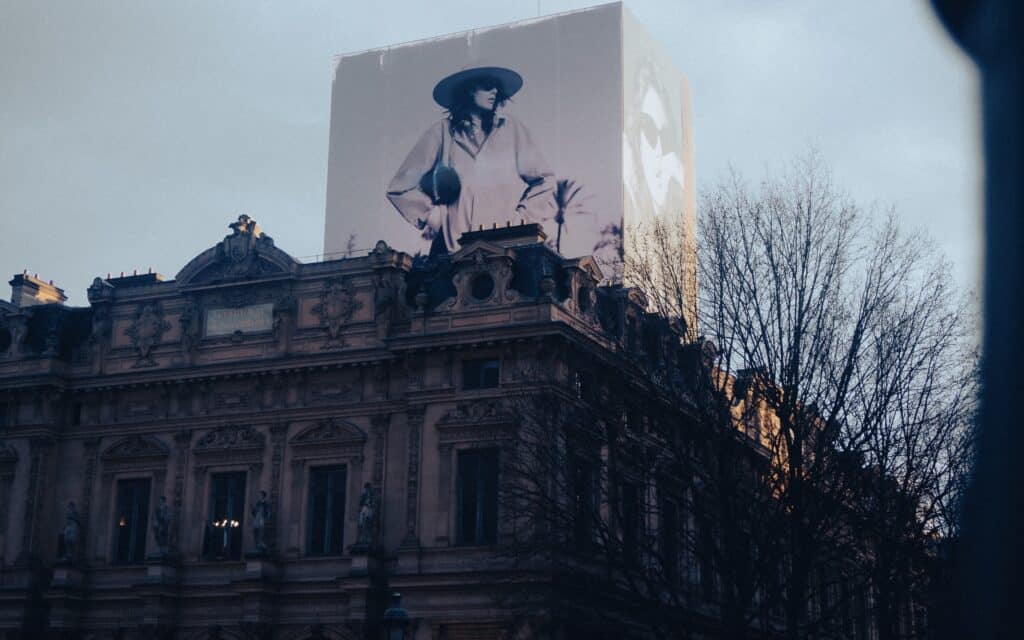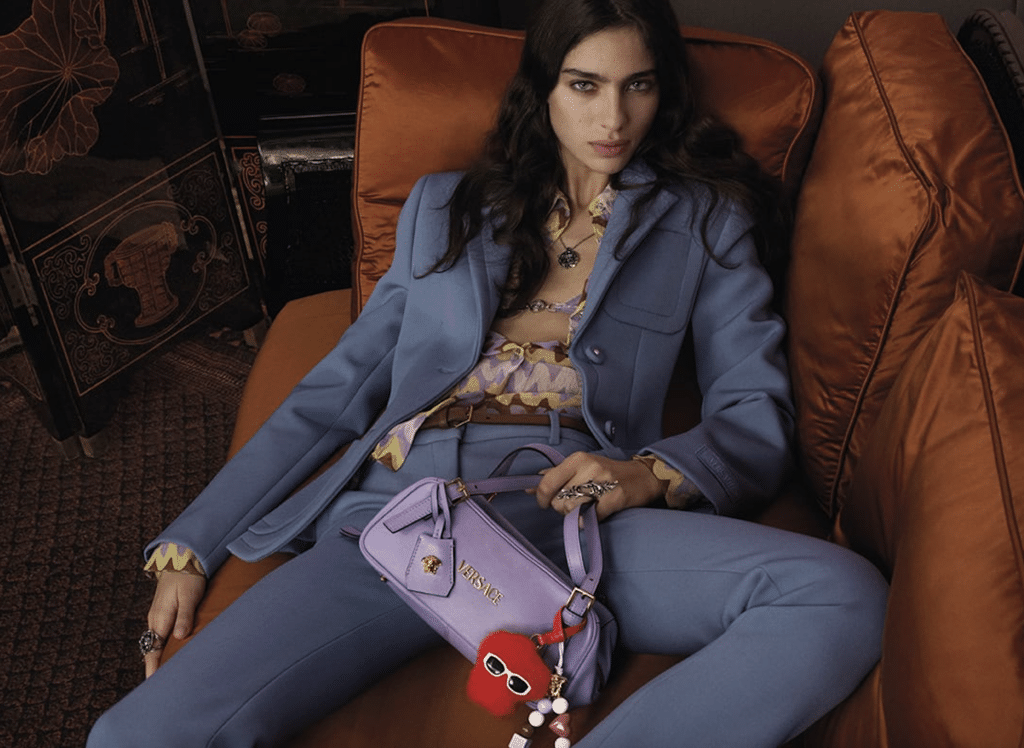Kering generated €13.10 billion ($15.77 billion) in revenue in 2020, with the French luxury goods group citing “a year of disruption” to help explain growth that fell short of analysts’ expectations and that lagged behind its closest rival LVMH. In its Q4 and full year report, which was released on Wednesday, Kering revealed that “while the health crisis and lockdown measures took a heavy toll on the Houses’ first-half sales (down 30.2 percent), the situation improved significantly in the second half (down 3.3 percent), despite new restrictions towards the end of the year in certain regions.”
Among the hardest hit by the onset and enduring impact of COVID? The group’s marquee label, Gucci. Accounting for 60 percent of revenues and 80 percent of profits, per Reuters, the Italian fashion brand took a 10.3 percent hit to sales in Q4 (analysts had expected a 4 percent drop), and a 21.5 percent fall on a comparable basis for the year, despite “a significant improvement in the second half” in terms of sales generated in directly operated stores. Kering stated on Wednesday that Gucci – which generated €7,440.6 billion ($8,958.3 billion) in sales in 2020 – exhibited “a robust and encouraging sales momentum with local customers, especially in Mainland China,” while online sales “continued to enjoy fast-paced growth, up nearly 70 percent for the year.”
Meanwhile, the Wall Street Journal’s Carol Ryan noted that compared to rival LVMH’s fashion brands, Gucci had “a much weaker fourth quarter,” and it was not merely a one-off, as Gucci – which she says “should have a competitive edge right now” thanks to Kering’s “deep pockets to invest heavily in e-commerce, digital marketing and to expand in Asia where demand from Chinese consumers has rebounded quickly” – has “not kept pace with LVMH’s fashion brands since early 2019.”
Kering chairman and CEO Francois-Henri Pinault “dismissed short-term concerns over Gucci, saying profitability and sales were set to recover,” per Reuters. “We still have a priority for organic growth, starting with Gucci, where we are far away from maturity.”
As for other Kering-owned brands, Yves Saint Laurent posted revenue of €1,744.4 billion ($2,100.5 billion) in 2020, down 13.8 percent on a comparable basis, following “a sharp contraction in the first half,” followed by a return to growth (2.1 percent) in the second half. For YSL, in particular, Kering noted that revenue from directly operated stores dropped by 13.4 percent, but online sales “surged” by almost 80 percent. Meanwhile, the buzzy Bottega Veneta had “a remarkable year,” per Kering, with sales of €1,210.3 billion ($1,457.5 billion), up 4.8 percent on a comparable basis, thanks in large part to “strong” sales in the second part of the year “buoyed by robust sales momentum in the Asia-Pacific region as well as by e-commerce” and “sharp” wholesale growth (up 48.5 percent).
Kering did not break out Balenciaga and Alexander McQueen’s revenues and growth figures, but said that they “delivered highly satisfactory performances, posting year‑on-year revenue growth,” while noting that its jewelry brands, “penalized by their exposure to Western Europe, reported strong sales growth in Asia.”
Citing takeaways from Wednesday’s FY20 conference call, Bernstein analyst Luca Solca stated that the “focus of the Q&A was predictably on Gucci – both its weakness in 2020 and potential going forward were explained.” Interestingly, he noted that while the focus was squarely on Kering’s largest brand, the conglomerate “subliminally … put forward the other brands: Bottega Veneta appeared on the front cover of the presentation slides and Saint Laurent at the conclusion. In terms of imagery Gucci was virtually absent from today’s talk.”
M&A in the Cards?
Reflecting on the group’s full year results, and the state of Gucci, Reuters reported that “concerns about [Gucci’s] slowing performance” have “fueled speculation that Kering might contemplate major acquisitions to boost its portfolio – especially as larger rival LVMH has just expanded with its $15.8 billion purchase of U.S. jeweler Tiffany.”
Pinault touched on the topic on Wednesday’s call saying that Kering’s “financial situation is very strong” and it is “looking closely at any opportunities that make sense,” with Reuters noting that the group could “potentially acquire and integrate a big target if the right opportunity arose.” Specifically asked about “recurring rumors” that Kering could join with Richemont, Pinault said that the Swiss conglomerate “is a group that we know well, it is one of our partners that gave us a license for their eyewear so we are in regular contact. But it is a group that is controlled by a family, as is Kering, and there is nothing else on this matter.”
As for 2021, Kering says that it will be a “year of investments.” Bernstein suggests that these “will be focused mainly on digital and will be deployed on a variety of fronts: 3D, virtual showrooms, social media, CRM programs relying on AI, immersive experiences, as well as e-commerce internalization and a full shift towards e-concessions.”














